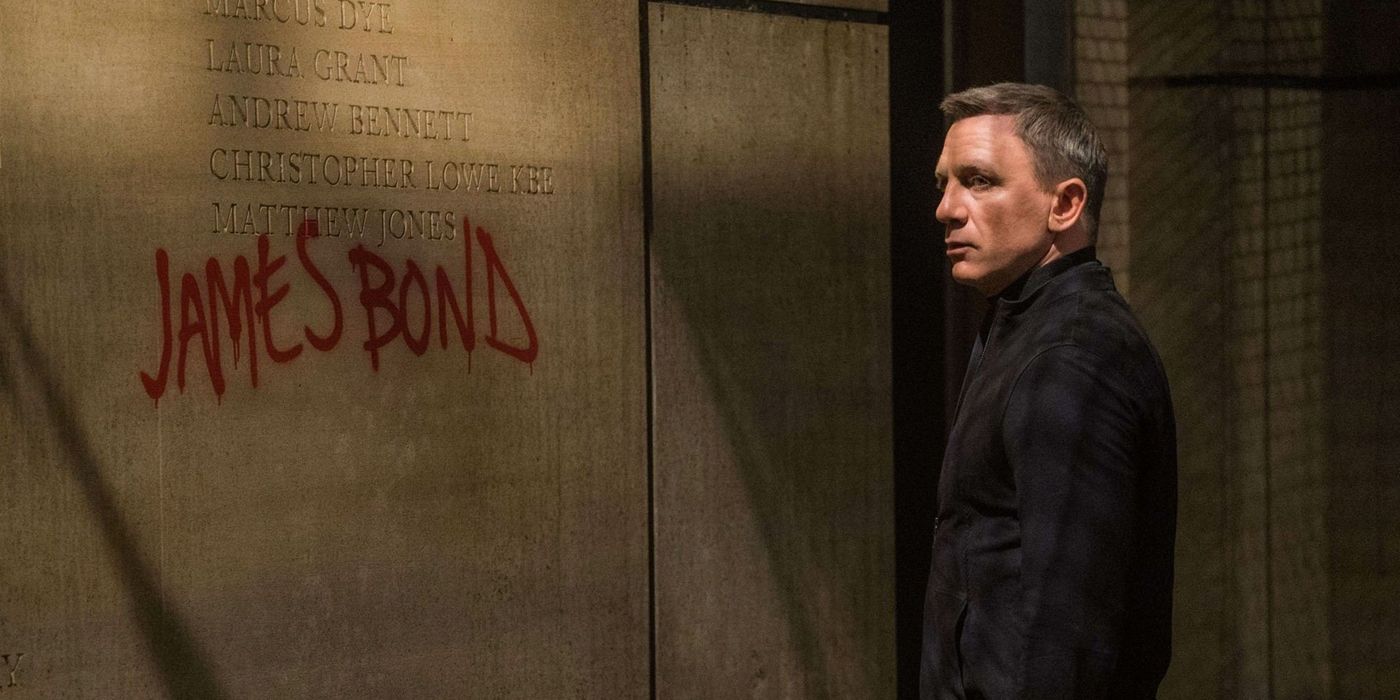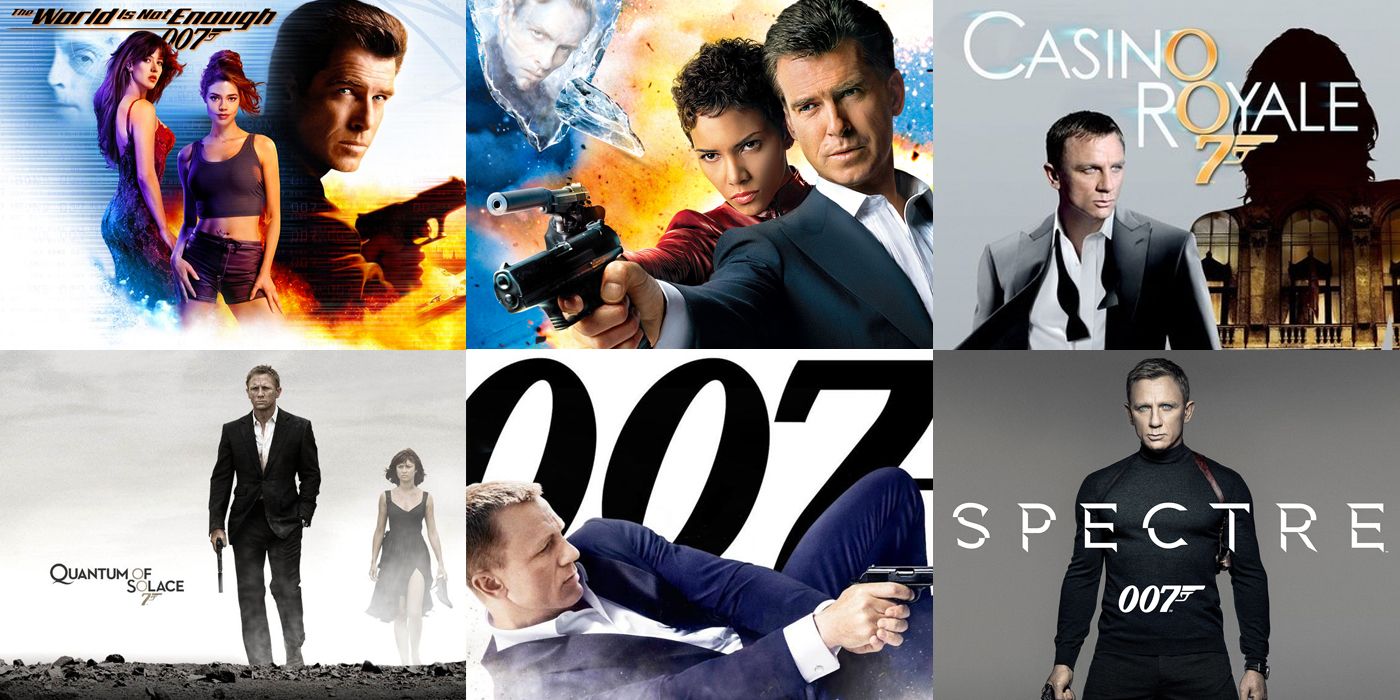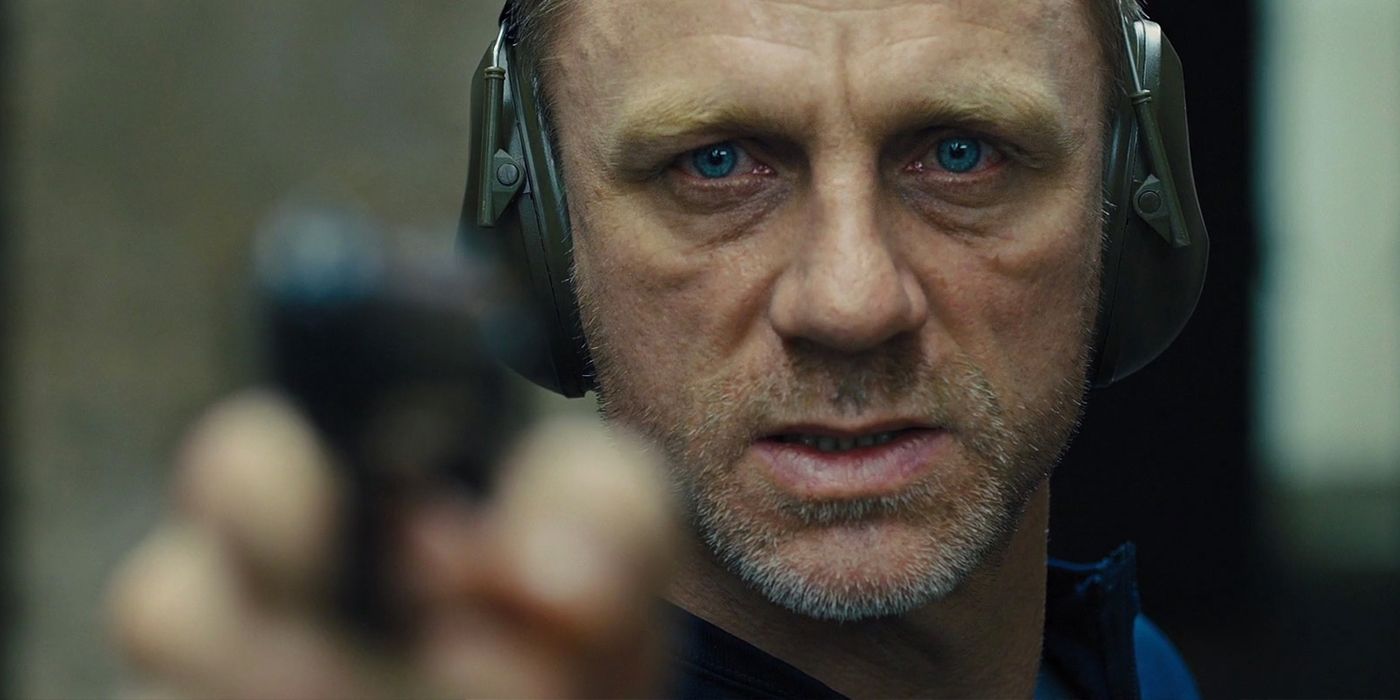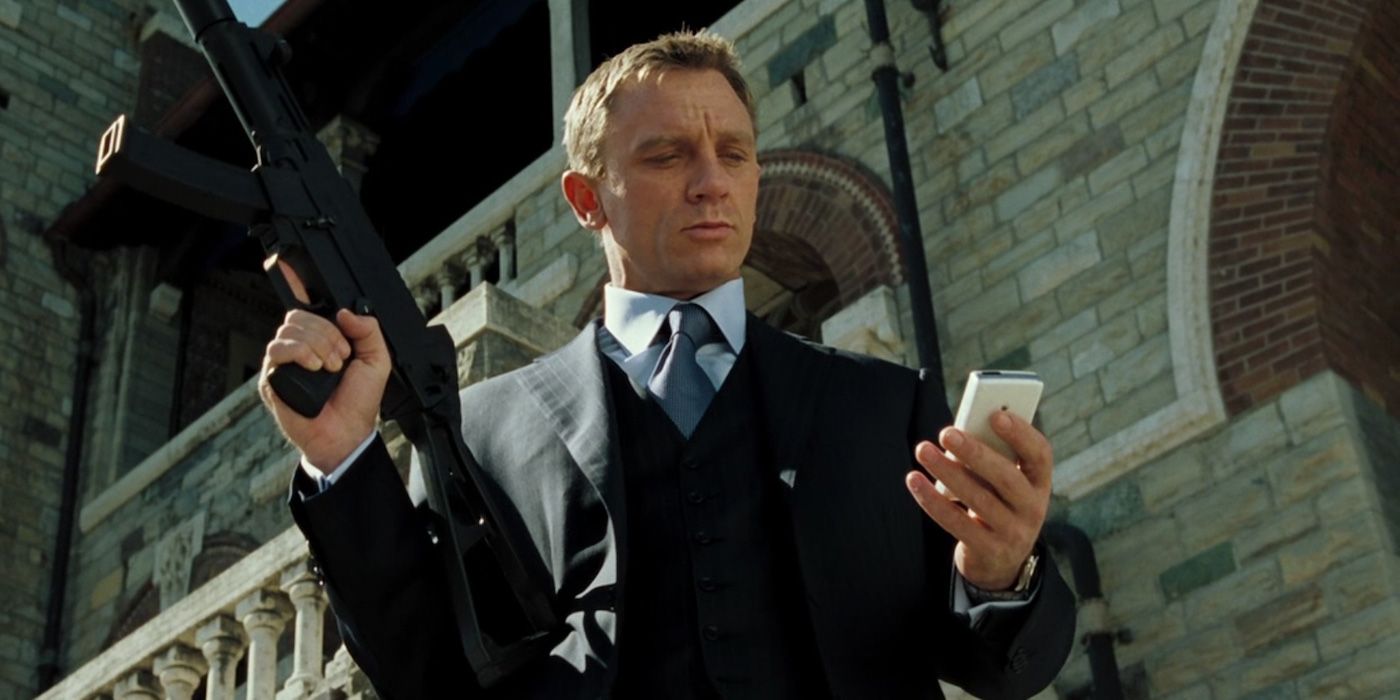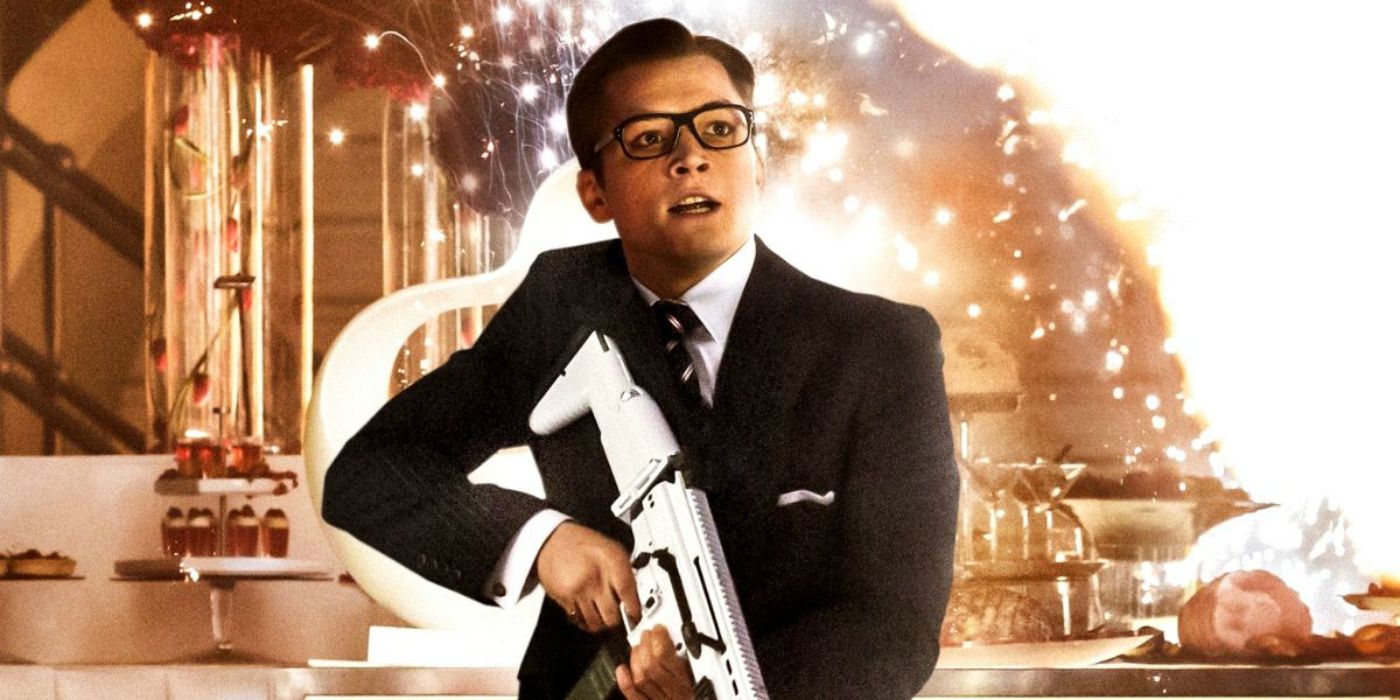Like every Bond film before it, Spectre ended with the simple, teasing text “James Bond will return.” Of course, in this case it’s proven quite a high order to deliver on. Even before the film came out, Daniel Craig was showing clear unhappiness in the role, famously saying in one interview he’d rather slash his wrists open there and then over doing another movie. His language has gotten a little less flavorful over time, but the same trepidation remains; since Spectre, Bond news has been dominated by stories of him refusing increasingly ridiculous offers and the bookies odds on who will succeed him fluctuating wildly.
It’s been a year-and-a-half and things are no closer to resolution. By comparison, Eon pretty much made Quantum of Solace in the same time period (that was way too rushed, but it shows how proactive the studio can be). This sort of delay is comparable to the umming and ahhing about the franchise after all-around disaster Die Another Day, which is kind of staggering; Spectre was a disappointment critically and financially, but it’s not enough to demand a series reset.
Finally, though, things are starting to move on Bond 25. While Craig’s involvement is no further along, the film has just snagged its screenwriters, franchise-familiar pair Neal Purvis and Robert Wade. This on the face of it promises that pre-production will soon be well underway on this landmark installment of the series, but there’s a problem: these are the last people you want working on the next Bond.
Who are Purvis and Wade?
Purvis and Wade are, essentially, the James Bond writers. They’ve worked on every single 007 flick since 1999 with The World Is Not Enough, with just a handful of other writing credits to their name (including Brosnan-era pastiche Johnny English). In that time they’ve seen two Bonds (maybe three if Craig doesn’t return), five directors, and a major studio shakeup, making them the longest, consistently-serving Bond creatives bar the producers; they’ve been a part of the series longer than Roger Moore was. After Skyfall, they actually announced retirement from the game, but were pulled back for Spectre following major script issues (something that was blown open by Sony’s controversial email leak) and are leading the charge once more.
It’s worth at this point establishing that their credits aren't all singular. They were the sole writers on The World is Not Enough and Die Another Day, but co-wrote Casino Royale and Quantum of Solace with Paul Haggis and Skyfall with John Logan, while on Spectre they were the third credited writing group after Logan and Jez Butterworth. As you can see, they're a mixture of macro constructors and fine-tuners depending on what the present project calls for, and as a result are widely regarded as an essential force in 21st Century Bond.
And that’s true. It’s just that it’s not necessarily a force for good.
Why Do They Need To Leave?
Let's establish from the offset that Purvis and Wade aren't bad writers, nor have they been explicitly bad for Bond; you don't get such lengthy employment in Hollywood without delivering on some level. That said, their inherent issues should be evident from their work. For starters, their singular credits come on Brosnan’s later two outings, some of the weakest films in the whole series, the latter of which was so poor is led to a soft reboot with a totally new tone. But worse is their complete lack of consistency. They are behind as many bad films as they are good ones (depending on how you count), and the issues range all the way from narrative (Quantum of Solace doesn’t really have any story drive) to tonal (their films reliably stumble when trying to insert Moore-esque cheese). On a flat results basis, they aren’t as good as they’re made out to be, and it’s getting to a point where things need shaking up.
What they really seem to offer is an understanding of the Bond formula; their Spectre call-back even seems to have them positioned in the role of fixers, brought in to add pepperings of usual 007 essence to what had become a morose, silly film. For a 55-year-old franchise that operates in a totally different manner to the usual blockbuster, that's essential. However, there are millions of people out there who understand the Bond type, what’s 100% necessary, what’s optional, and what you definitely don’t do. Application is what matters, and there are some problems that have gotten exacerbated over their six movies.
Look at how they’ve handled attempts at replicating other films. Bond has always chased trends, evolving to reflect whatever current flavor was powering the box office (best seen with Fleming’s Moonraker becoming a thinly veiled Star Wars ripoff), and the weaker entries in the recent years have fallen prey to that; Quantum was the Bourne imitation, with a personally-motivated Bond on a shakey-cam revenge mission that bore little resemblance to the rest of the series, while Spectre was a shared universe movie that retroactively forced Craig’s previous films into some grand scheme in an incredibly hackneyed way. Neither of these failures are solely down to the script, but it’s something the writers still seemed wholly unequipped to deal with.
The ultimate issue, though, and the thing that should have been capped earlier, is their constant insistence on making post-modern Bonds. Now, what Eon has broadly done with Craig's tenure is great, using films like Casino Royale and Skyfall to dissect what he really represents and comment on the changing times since his creation, but it's reached its peak. Spectre's subplot with Andrew Scott's C was a blatant retread of Skyfall's "Is Bond still relevant?" argument, suggesting there's nowhere major left to go in this trend. Worse, though, Purvis and Wade have found a lazy story conceit within that they’ve trotted out so much it’s regrettably part of the formula.
Every single one of their movies has Bond going rogue from MI6. Every. Single. One. Sometimes it’s because he’s fired, sometimes he’s on the run, sometimes it’s because he’s presumed dead, once it was because he was held captive by the North Koreans (good thing emails weren’t as prominent then,) but the single constant is that he can't just get called in for a meeting with M and simply get sent on a mission. Maybe it’s because they took over in the wake of Mission: Impossible, maybe they just want to be different, but it’s grown tiring and emblematic of a strange resistance to doing fresh things; when the new default is the opposite of the old one, things need to change.
Literally, the only extension of this is that they pulled it twice in Spectre, with James going rogue in the first act as per, before having him turn his back on super sleuthing and driving off into the cloudy London landscape with the daughter of his deceased nemesis-turned-lover Madeline Swan at the end. Yes - the biggest shakeup was to repeat the formula. That ending, in particular, is a perfect example of failed potential; it’s part muddled setup for a sequel, part desperate attempt to shake things up, part failed exploration of who James Bond is as a character. Again, it's not all on these writers, but it's emblematic of their approach.
Who Should Replace Them?
Deciding who should make the next Bond film is almost as tricky as deciding who should actually play ol’ Jimmy. It’s a challenge for sure, requiring a balance of unique perspective and franchise adherence. This is why Purvis and Wade have proven so successful, and likewise will be hard to replace.
As is the case with any new film in the series, the obvious fan-favorite contenders are proven auteurs like Christopher Nolan and Quentin Tarantino, both of whom have expressed a desire to work with the series in the past and would presumably write their own entries. Nolan, in particular, would be a genuine possibility if the series were to jump over to his home studio of Warner Bros. However, being rational, expecting someone of that level of fame to take on the franchise would be surprising. Sam Mendes was something of a coup, after all.
The obvious best candidates thus would be director-writer team Matthew Vaughn and Jane Goodman. The duo is a filmmaking powerhouse, and much of their work has flirtings with 007; Mark Strong is pretty much a classic Bond villain in Kick-Ass, Michael Fassbender’s (who is a recent odds-on favorite for the role) subplot as a vengeful Magneto in X-Men: First Class clearly lifted from the Connery-era and Kingsman: The Secret Service was an affectionate pastiche that was more earnest than previous parodies like Austin Powers. In fact, that they’re so perfect may be the issue; through their filmography, and specifically Kingsman and its upcoming sequel, they may have bet so much in homage that they’re ruled out of taking on the main beast. There’s also those Man of Steel 2 rumors that could see the director at least taken out of the running.
With that in mind, another solid high-profile choice would be Alex Garland. The British screenwriter has built himself up over the past fifteen years as a major genre presence, with particular skill in drawing a lot out of minimalist concepts; see $30 million Dredd or $15 million Ex Machina (which he also directed), a track record that would offset fears of a repeat of Spectre's budgetary failures. Bond would see him coming down to Earth a little, but his career as a filmmaker is at the right point for it to work.
Of course, those are all still pretty big names. In reality, we’d more than likely end up with a writer or writers of less immediate notoriety, and probably chosen independently of the director. That’s how Bond films have worked from long before Purvis and Wade came on the scene, and while a stronger creative vision may be what’s required, there are some traditions that are never messed with.
Conclusion
For all the evident knowledge Purvis and Wade have, at this point there's a big question of whether they're able to elevate the material enough anymore. To reiterate, they're not necessarily the worst people to be writing the films, but their cracks are starting to show; there's no escaping what James Bond could do with a writer shakeup.
With the duo starting work on Bond 25, there won’t be a changing of the guard any time soon. However, presuming that Eon does manage to draw Daniel Craig back for one more, then perhaps with #26 we can have a completely fresh start; new star and new writers and a new age.

